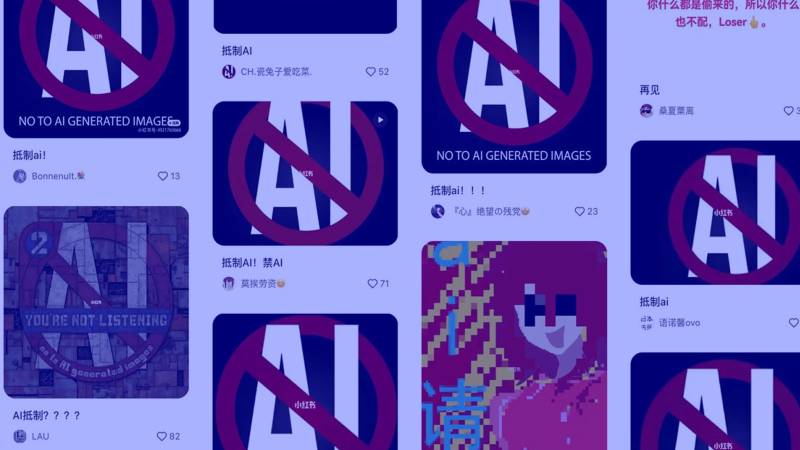
Artists are boycotting China's most popular social networking site due to complaints over its AI picture-generating tool.
The dispute started in August when an illustrator going by the name of Snow Fish claimed that the privately held social media platform Xiaohongshu had utilized her work without her knowledge or consent to train Trik AI.
Trik AI, which is currently in development and hasn't officially debuted yet, specializes in creating digital art like traditional Chinese paintings.
For privacy concerns, CNN used Snow Fish's Xiaohongshu pseudonym instead of her real name. Snow Fish claimed she first learned about the problem when friends showed her images of artwork from the platform that looked eerily identical to her own.
Trik AI, could you tell me why your AI-generated graphics resemble my original works so much? In a post that soon went viral online among her fans and the artistic world, Snow Fish made some statements.
The debate broke out only a few weeks after China introduced regulations for generative AI, becoming one of the first governments to control the technology as nations across the world debated AI's possible effects on jobs, national security, and intellectual property.
Trik AI and Xiaohongshu, which claims to have 260 million monthly active users, keep the materials used to train the program secret and have not responded to the accusations in the open.
Multiple attempts for a response from CNN have gone unanswered by the businesses.
Snow Fish, however, claimed that a user of the official Trik AI account had sent her an apology in a private message, recognizing that the postings in the issue had been removed and acknowledging that her artwork had been used to train the program. CNN looked over the texts.
Snow Fish wants a formal apology nonetheless. With numerous other artists saying their works had been similarly exploited without their consent, the incident has sparked public demonstrations on the Chinese internet against the production and usage of AI-generated artwork.
